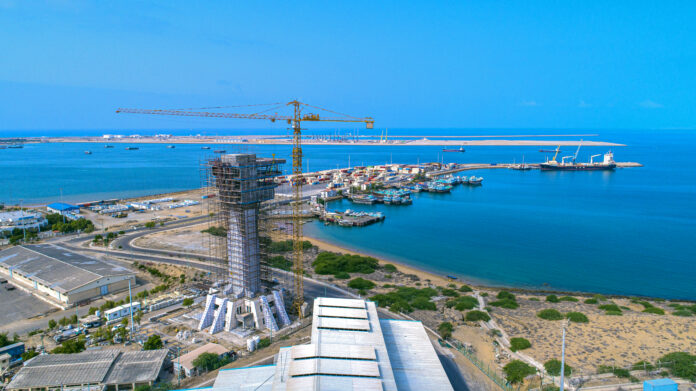US sanctions on a major Indian port project in Iran took effect on Monday, ending a rare exemption that had allowed New Delhi to develop the Chabahar port despite previous sanctions on Tehran.
The move is part of President Donald Trump’s broader strategy to pressure Iran and reinforce “maximum pressure” policies targeting the country’s nuclear program.
According to media reports, the exemption, first granted by the Trump administration in 2018, had permitted Indian companies, including state-run India Ports Global Limited (IPGL), to continue investments in Chabahar while US sanctions were in place. Chabahar was intended as an alternative route to Afghanistan, bypassing Pakistan’s dominant transit corridor.
Since 2018, circumstances have shifted significantly. The Taliban regained control of Afghanistan in 2021 following the US troop withdrawal under a peace deal signed by Trump. Meanwhile, US-India relations have grown tense, partly due to disputes over trade and India’s oil purchases from Russia, leading to additional US tariffs on Indian goods.
State Department spokesman Tommy Pigott confirmed the end of the exemption, effective September 29. Companies with US exposure now have 45 days to exit Chabahar or face frozen assets and restrictions on US transactions. Pigott said the exemption had been granted previously for Afghanistan reconstruction and economic development.
Legal experts warn that inclusion of Indian firms on the US sanctions list could have cascading effects, discouraging banks and companies from engaging with the designated entities. Joshua Kretman, a former State Department sanctions counsel, noted that any globally operating firm would face challenges accessing major banks or dollar clearing systems.
India’s foreign ministry spokesman Randhir Jaiswal said the country was “examining the implications that this revocation has for India.” Last year, IPGL signed a 10-year contract committing $370 million to Chabahar, highlighting the port’s strategic significance for India’s regional connectivity to Iran, Afghanistan, and the Middle East, while bypassing Pakistan.
Chabahar’s proximity to China’s Gwadar port in Pakistan’s Balochistan region underscores its geostrategic importance. Analysts say India will likely adopt a cautious approach, complying with US sanctions while using ties with Iran to maintain leverage in dealings with the US, Gulf states, and Israel.
“India may choose to wear the sanctions as part of a broader strategy among non-Western powers, including China and Russia, to reduce reliance on the US economy,” said geopolitical strategist Kadira Pethiyagoda.























